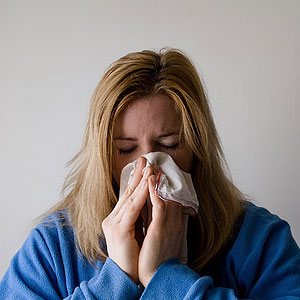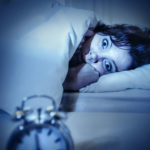Sleep loss is a typical present-day problem in society. Almost everybody has experienced this at some point in their lives.
Sleep loss happens when a person gets less sleep than their body requires to feel awake- alert and quick. There is no clear indicator of how little sleep is considered sleep deprived. Older adults frequently show more resistance to the effects of sleep loss, while younger ones, especially children and teenagers, are more vulnerable.
 Sleep loss can cause various problems across a range of systems in the body. It can have subsequent repercussions like:
Sleep loss can cause various problems across a range of systems in the body. It can have subsequent repercussions like:
- The inability of the body to produce more cytokines to fight infection; that’s vital for your immune system. Thereby increasing the risk of you catching a chronic illness and a longer recovery from even the weakest viruses.
- It can also increase the risk of your body being vulnerable enough to contract new and advanced respiratory diseases.
- Fluctuating body weight. Leptin and ghrelin levels, two hormones that control feelings of hunger and fullness, are greatly affected by sleep. Sleep loss also induces the release of insulin, which leads to a higher risk of type 2 diabetes.
- Sleep helps the heart vessels process and maintain blood pressure and sugar levels. Chronic sleep loss doubles the risk of cardiovascular disease.
- Lack of adequate sleep can also affect hormone production like growth hormones and testosterone in males.
 Sleep loss impairs the ability of the brain to create reasonable decisions. The prefrontal cortex, cannot actively control the emotional part of our brains, the amygdala. This leads to abnormal behavior and an exhibition of various emotions that result in:
Sleep loss impairs the ability of the brain to create reasonable decisions. The prefrontal cortex, cannot actively control the emotional part of our brains, the amygdala. This leads to abnormal behavior and an exhibition of various emotions that result in:
- reduced ability to have a positive outlook in life
- Dejected behavior with a lessened willingness to solve problems
- Increased tendency to be superstitious and believe in fantastical things like magic
- less empathy for other people
- poor impulse control
- failure to withstand delayed gratification
Sleep-deprived people are more likely to be found to have developed feelings of worthlessness, incompetence, fear, frustration, low self-esteem, unsatisfactory career performance, and conflicts with friends, family, and coworkers Many of these remain even when attentiveness is supported by stimulants such as energy drinks or caffeine.
Having a sufficient amount of sleep is also vital for the preparation of the brain for learning. A sleep-deprived brain will find it difficult to concentrate and recall new information.
Shorter sleep durations have also been found to be possible predictors of weight gain in both adults and children. Each 1-hour reduction in nightly sleep is correlated with an increase of 0.35 kilograms (kg) in body weight.
Finally, sleep-deprived people score higher on clinical scales measuring depression, anxiety, and paranoia.




